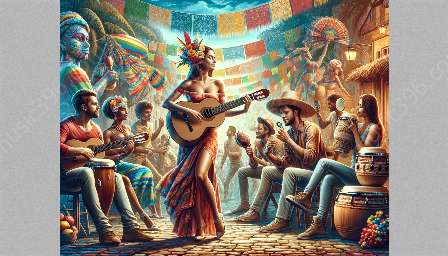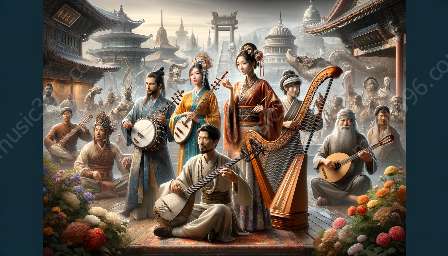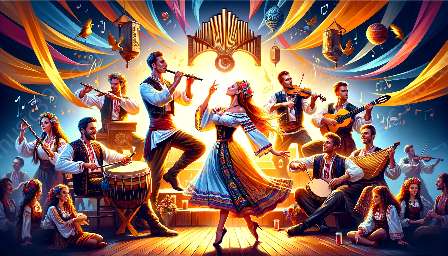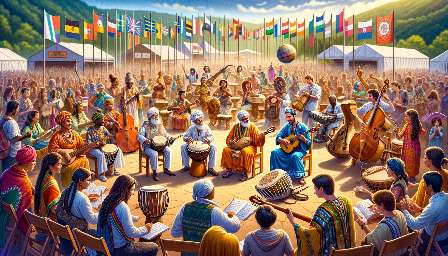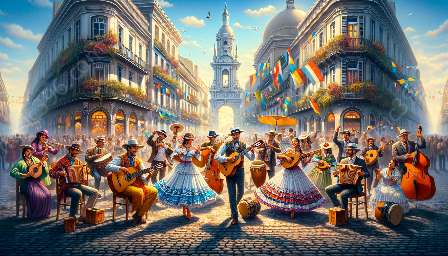Samba music has long been a catalyst for social and political movements, serving as a potent expression of cultural resistance and unity. Originating in Brazil, samba has transcended geographical boundaries to inspire change and activism on a global scale, shaping the discourse and actions of communities worldwide. This article delves into the compelling ways in which samba music has ignited social and political movements, reinforcing the interconnectedness of art, identity, and activism.
The Roots of Samba
Before delving into its influence on social and political movements, it's essential to understand the origins of samba music. Samba originated in Brazil, particularly in the state of Bahia and the city of Rio de Janeiro, stemming from a rich tapestry of African rhythms, European melodies, and indigenous influences. Initially associated with marginalized communities, samba served as a form of cultural expression and resistance for those who faced social and economic marginalization.
Samba as a Tool for Social Change
As samba evolved, it became a powerful tool for advocating social change and uplifting the voices of the oppressed. The infectious rhythms and compelling lyrics of samba music captured the spirit of resilience and hope, resonating with communities facing various forms of oppression, discrimination, and systemic injustice. Samba artists used their music to shed light on pervasive issues and spark conversations about matters ranging from poverty and racial inequality to political corruption and environmental degradation.
Political Mobilization and Resistance
Within the context of political movements, samba has been instrumental in mobilizing and uniting diverse communities to push for social and political reform. During times of political upheaval and authoritarian regimes, samba served as a unifying force, galvanizing individuals to challenge oppressive structures and demand justice and equality. The lyrics of samba songs often conveyed poignant social commentary, serving as anthems for resistance and solidarity in the face of adversity.
Influence on Global Activism
While samba has its roots in Brazil, its influence on social and political movements extends far beyond its country of origin. The vibrant and infectious nature of samba music has resonated with people across the globe, inspiring them to harness the power of music as a catalyst for change. From the civil rights movement in the United States to anti-apartheid protests in South Africa, samba music has served as an emblem of defiance and an essential component of global activism, unifying individuals in their pursuit of justice and liberation.
Unity and Solidarity
Beyond its role in driving specific political agendas, samba embodies the spirit of unity and solidarity. Through its communal and participatory nature, samba music brings people together, transcending barriers of language, culture, and geography. Samba parades, carnivals, and gatherings serve as platforms for collective celebration and resistance, fostering a sense of belonging and shared purpose among participants. This communal unity has been fundamental in fostering resilient and interconnected communities, driving collective action for social and political change.
The Continuation of Samba's Legacy
As the world continues to grapple with complex social and political challenges, the legacy of samba music as an agent of change remains pertinent. Contemporary samba artists continue to harness the power of music to address pressing issues and amplify marginalized voices, ensuring that the spirit of samba endures as a beacon of hope and resistance. Moving forward, samba music will remain an inspiring force that empowers communities to advocate for justice, equity, and societal transformation.

